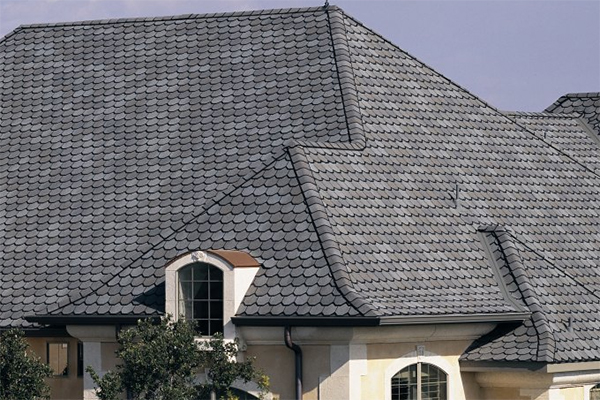Whether building from scratch or choosing a new roof for your existing home, a wide range of roofing materials are available and worthy of consideration.
Style is an important factor for many, but it should not the only determinant. Elements such as climate and weather conditions, product cost, material weight, and installation requirements should be considered. Here is the list of best roofing materials for aspiring homeowners
1.Asphalt shingles
Asphalt shingles are some of the most commonly use roofing materials today. They are common especially in North America because they have a relatively inexpensive up-front cost and fairly simple to install.They also offer a variety of attractive options.
Types of asphalt shingles
Fiberglass shingles’ base is a fiberglass mesh mat. This is covered in asphalt and topped with granules that provide color and reflect some of the sunlight. The shingles made using fiberglass are not only lightweight but they also resist tearing.
Organic asphalt shingles begin with recycled paper saturated in asphalt and covered with granules. As such, these shingles are heavier and harder to work with compared to fiberglass. Nevertheless, their stability in high winds is unparalleled.
Sadly, organic shingles have been mostly phased out or discontinued over the course of last decade. This can be attributed to their tendency to dry out, become less-waterproof and more prone to excess moisture absorption.
Pros
- Fiberglass shingles offer good fire protection
- Has undisputed aesthetic value
- Shingles are often the most affordable roofing option
- The best asphalt shingles are a 30-year roof solution installed on homes located in moderate climates
- No support beyond standard roof sheathing is required for shingles
- High winds resistance
- High-impact shingles are advisable especially in heavily-wooded locations and areas where large hail is possible
Cons:
- The lifetime cost of shingles is higher as compared to metal, tile or slate, because of the need for frequent composition replacement
- Cheap asphalt shingles do not last long in hot climate. Furthermore, rapid temperature changes can cause asphalt shingles to crack
- Inasmuch as they can be recycled for paving, very few recycling facilities will take them. They are also among the least eco-friendly roofing options
- Layer replacement requires a do over of the entire roof, resulting in extra expenses
- Mold or algae can be a problem on shingles in shady areas, unless treated with anti-algae/anti-stain treatments
- Organic/felt shingles are heavy; getting them to the roof in bundles can be a challenge
2.Wood shingles and shakes
Wood delivers a natural dose of beauty to any roof. Cedar, redwood, cypress and pressure-treated pine shingles and shakes are available.
Wood shingles are machine-cut and feature cleaner edges and a smooth surface to produce a more uniform appearance, whereas the latter are hand-cut from blocks of wood. They thus have a more rustic appearance. They’re thicker too, so slightly more expensive than wood shingles.
Pros
- Wood has undeniable aesthetic value
- Some types of wood contain oils that make them naturally resistant to moisture and insects
- Treated wood shingles have a Class A fire rating
- They can last 5 to 10 years longer than asphalt
- Wood has an insulation value twice that of asphalt shingles
- Wood is recyclable into wood chips, mulch or compost
- They enhance a range of architectural styles
Cons
- Non-treated materials have a Class C fire rating, but are also available as a more-costly treated option
- Wood roofing is prohibited in some areas prone to wildfire
- Untreated wood shakes and shingles are high maintenance
- Faults in the installation can lead to quick deterioration of the roof which often includes serious leaks
- Staining of the shingles and shakes might occur as natural factors cause tannins to be released from the wood.
3.Metal
Metal roofing materials are highly admired by homeowners due to their durability. They are more expensive than asphalt and wood. But one very significant feature about metal roofing materials is that they can be recycled. They also require less maintenance.
4.Roof tiles
Modern tiles can be from Traditional clay, Fiber cement tiles or Concrete tiles. Roof tiles are durable. They can last for 50 years. They are also resistant to insects and fire.
However, tiles can be expensive to install, break when walked on and heavier than most roofing materials thus requiring extra framing support.

